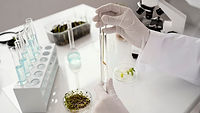FSAI Publishes Guidance for Industry on Safe Use of Probiotics in Food Supplements

Image credit: Alicia_Harper via Pixabay
In the absence of EU guidance on probiotic food supplements, the Food Safety Authority of Ireland (FSAI) has developed its own guidance document to help food supplement producers and food businesses assess the safety of probiotics used in their products.
According to the guidance, the most commonly used probiotics in food supplements are lactic acid bacteria strains, bifidobacteria, Bacillus sporogenes, and Saccharomyces boulardii. Although the consumption of probiotics can carry some potential risks, reported adverse effects resulting from common probiotic food supplements are few. When adverse effects have been reported, they are usually in patients at an increased risk of infection.
Under current EU law, the term “probiotic” is currently not authorized as a health claim and is therefore not allowed on food or food supplement product labels. In Ireland, food supplement producers are required to notify FSAI of their products being placed on the market, which is not an approval or authorization procedure; rather, a notification is completed via an online form, which includes submission of the product label to FSAI. Additionally, FSAI references the European Food Safety Authority’s (EFSA’s) Qualified Presumption of Safety (QPS) list—which includes some species-level bacteria and yeasts—to assess the safety of microbes or their byproducts in foods.
Furthermore, if a probiotic organism was not used in food in the EU prior to 15 May 1997, its use must be authorized under the novel food Regulation (EU) 2015/2283. If the organism was genetically modified, it must be authorized under Regulation (EC) No. 1829/2003 on genetically modified food and feed, and under Directive 2001/18/EC on the deliberate release into the environment of genetically modified organisms.
In the guidance document, FSAI describes the most appropriate criteria when assessing the safety of probiotic food supplements, including:
- A history of use demonstrating the organism’s safety, with adverse health events being isolated or rare and limited to those at the highest risk of infection
- The organism in use is identifiable to the species level
- There is an antimicrobial agent available for treatment of infection by the organism used
- The organism is thoroughly characterized, including its species and strain level, the sufficient absence of infectious properties, the absence of transferable antimicrobial resistance genes (AMR), and the absence of the capacity for biogenic amine production.
FSAI states that a food supplement producer should be able to demonstrate that the organism(s) used meets the aforementioned criteria. Other food safety evidence that supplement producers should provide to FSAI include:
- The culture has been deposited in a recognized and accessible culture collection if not obtained from a culture collection
- If cultures are stored, they are stored at -80 °C to ensure that they remain stable in storage
- If cultures are propagated, the characterization of the organism should be repeated at defined intervals to ensure that the organism has not significantly altered or been inadvertently displaced by, or contaminated with, another organism
- The production process does not result in substantial change to the properties of the microorganism between start of production and the end product
- The production systems have adequate quality management systems to ensure consistent properties of the organism(s) in the final product.
Other recommendations to food producers in the guidance document suggest that producers document their food safety management systems (FSMS); that the individual microbial strains used should be stored and accessible in the event of a suspected link to human infection; that the product labels include strain types and the number of organisms present, appropriate storage advice, and accurate shelf-life information; and, in the instance that an Enterococcus faecium strain is used, that the label clearly indicates its presence.
Looking for a reprint of this article?
From high-res PDFs to custom plaques, order your copy today!






